The film “Pride” came out in 2014. I didn’t see it until 2016 or 2017. It tells a great story of the struggles of a gay life-style, unions and their police repressions, acceptance and struggles against authorities in Great Britain namely Margaret Thatcher’s years as Prime Minister of the U.K.
The film is available on Prime for online viewing. Watch the trailer – imdb.com/video/vi2804329497
Pride Trailer (more family friendly) – imdb.com/video/vi788573209
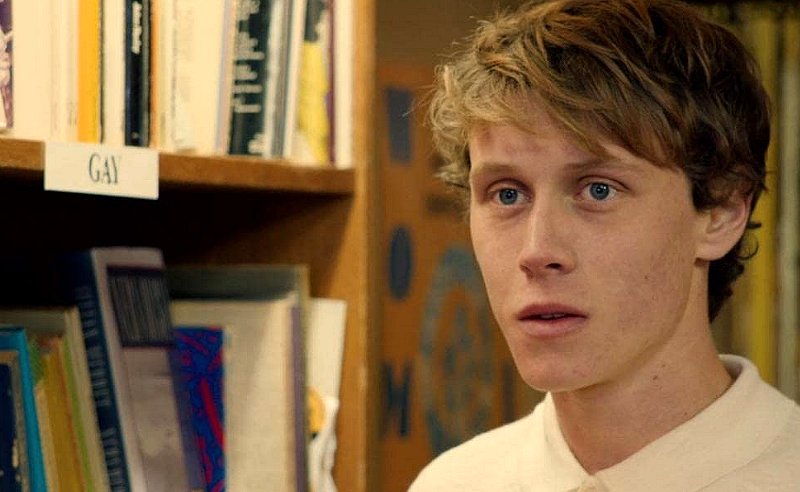
The story begins with Joe, played by George MacKay, who finds himself watching a gay demonstration and then gets handed a pole to carry a sign in the parade. Joe didn’t fit in, but is accepted by a small group of gays and lesbians. He’s from Bromley (a district of south east London), and soon that’s what people call him. He’s an affable, likable character and soon becomes the group photographer. In real life MacKay, has done well in films. He starred in the Oscar nominated film “1917” with a cast of prime film stars. The film didn’t win best picture, but won for Cinematography, Visual Effects, and Sound Mixing.
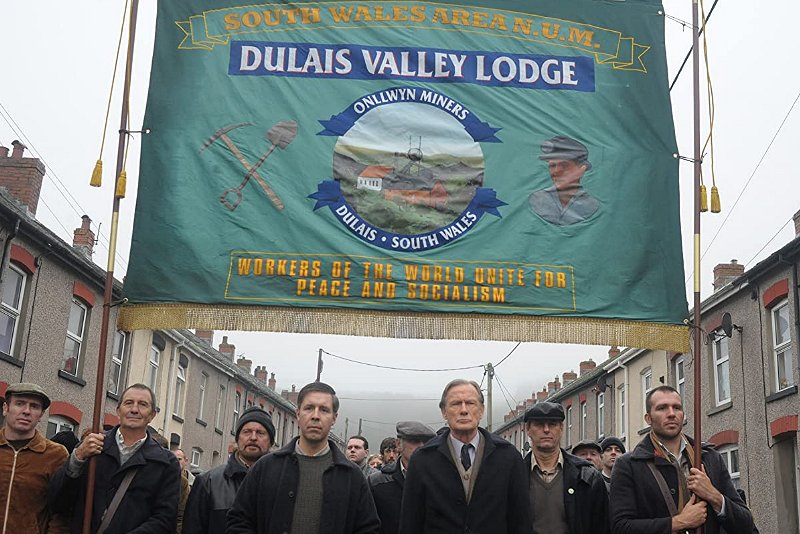
The film “Pride,” based on true events and people, concerns the miners strike during 1984-85. “The ensuing strike against job losses, for which the NUM (National Union of Mineworkers) controversially never held a national ballot among its members, pitted striking miners against Mrs Thatcher’s government, the police and other miners, and led to divisions in families which remain to this day.”
Pride is filled with familiar faces, most notably Bill Nighy, Dominic West, and Imelda Staunton. It’s a great cast.
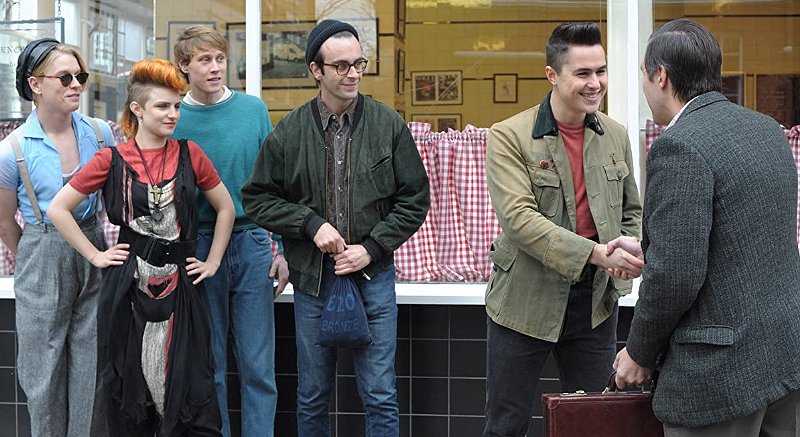
Mark Ashton, played by Ben Schnetzer, puts two and two together and realizes that gays and lesbians are not being harassed by the police any more, now that they are harassing the miners instead. He proposes to his friends that they support the miners. It’s not an easy sale. After many phone calls they connect with one miner’s union, the Dulais Valley Lodge. The representative of the union, Dai Donovan, played by Paddy Considine, travels to meet his new supporters in London and is welcomed by Mark Ashton.
Mark and his crew travel to the Wales to meet the miners and get a luke-warm reception until Jonathan (Dominic West) takes over. He changes the DJ’s tune and dances with almost every wife and girl friend at the lodge to the astonishment of the men and the joy of the women. At the end of the dance, Jonathan says, “God, I miss disco.” West has extensive film credits (known for “The Wire” (2002), “Chicago” (2002), “The Forgotten” (2004), “300” (2006), and “The Affair” (2014). The gap was filled by getting married and having four children.
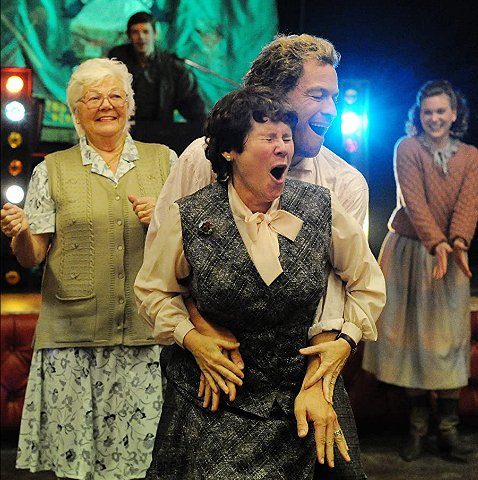
Later at a full-room meeting in Wales, Mark has an epiphany and realizes what needs to be done. He speaks up and shares . . . when he finishes a young woman stands up and sings “Bread and Roses.” I tear up every time I see this. The song is a traditional union song from the women’s point of view and is a showstopper. – youtu.be/qNQs6gSOkeU
Back in London, Mark talks to the press as he plans a live concert/dance. Standing to the left of Mark is Andrew Scott who plays the shy Gethin Roberts. Gethin left Wales when his mother couldn’t stand that he was gay. When he travels to Wales he meets the lodge director, Hefina (Imelda Staunton) who delivers one of the best lines in the film:
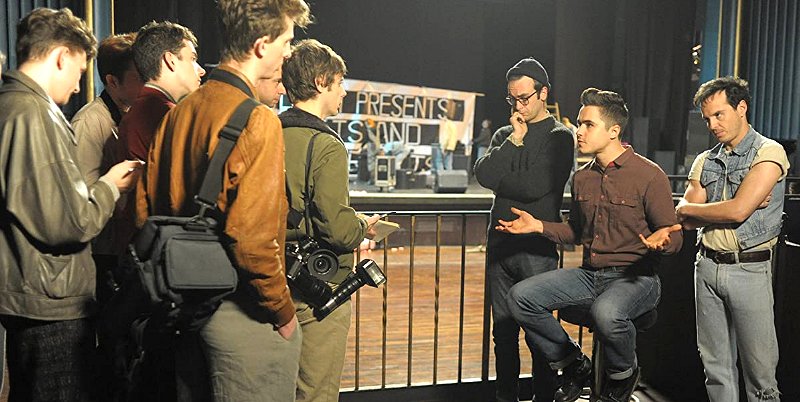
Dai : Where are you from?
Gethin : Rhyl, originally.
Dai : [Hefina, Dai and Cliff turn serious] No, no way.
Hefina : [to Jonathan] Listen, we don’t mind the gays, and the lesbians, that’s fine. But don’t you dare be bringing people from North Wales down here!
[an awkward silence follows and then they all laugh]
The promised fantastic event is a success. Women from the lodge attend, visit all-male bars afterward, and have the time of their lives.
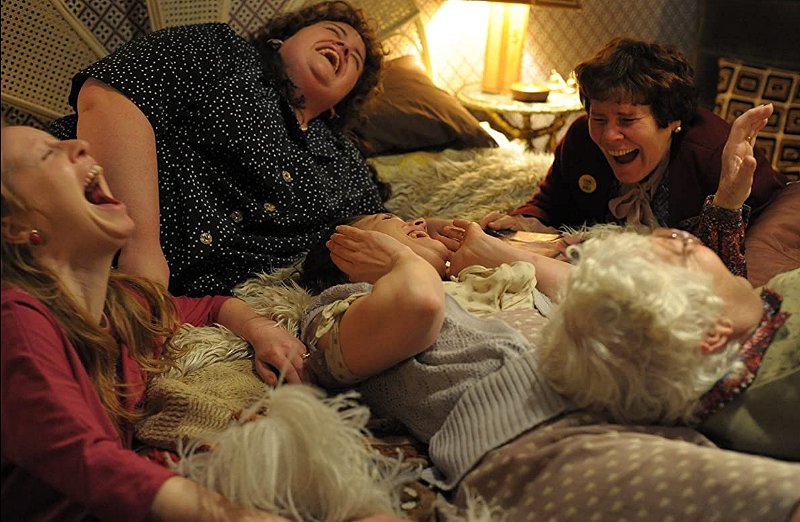
The opening act performs Bronski Beat’s – Why? at a super audio level.
There is dissension from some of the miners and our group loses their starting position at the London Pride parade, but . . . you need to watch it yourself.
I recognized Andrew Scott from his role as “Cowboy” in the second episode of “Band of Brothers.” He played a radio operator who helps blow up German field guns that are killing Americans landing at Normandy. He’s the only fatality.
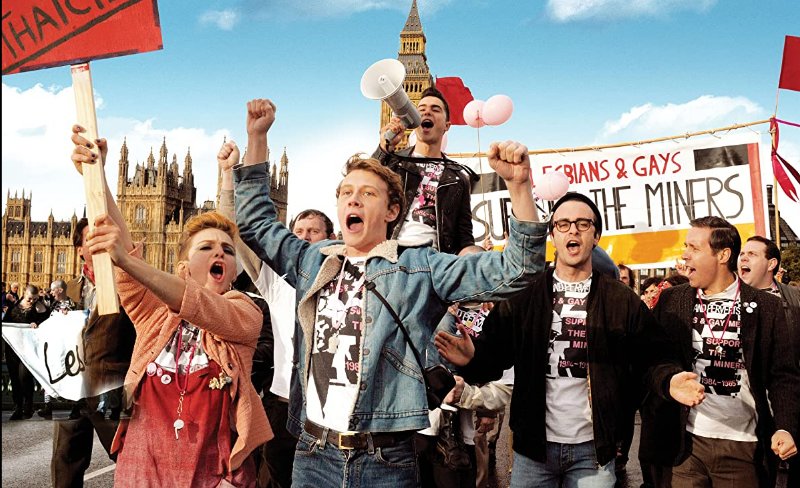
Currently Scott is playing a “hot” priest in the BBC series, “Fleabag” – irishtimes.com/culture/tv-radio-web/fleabag-s-hot-priest-andrew-scott-on-sex-catholicism-and-lgbt-actors-1.3903069
There is humor through-out the film as well as pain and hurt. Bromley turns legal age and declares that his name is Joe.
I highly recommend this film for both pure entertainment as well as its historical significance.
The views expressed in this article are the writer’s own.







